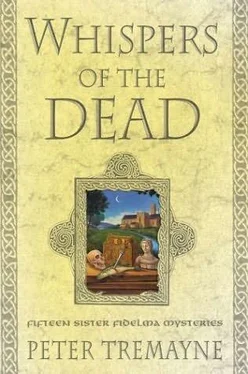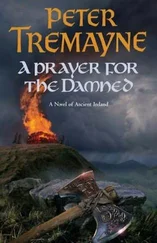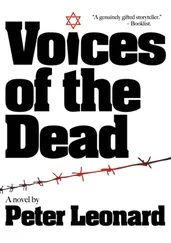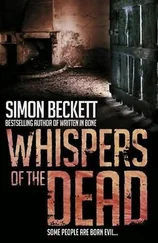Peter Tremayne - Whispers of the Dead
Здесь есть возможность читать онлайн «Peter Tremayne - Whispers of the Dead» весь текст электронной книги совершенно бесплатно (целиком полную версию без сокращений). В некоторых случаях можно слушать аудио, скачать через торрент в формате fb2 и присутствует краткое содержание. Жанр: Исторический детектив, на английском языке. Описание произведения, (предисловие) а так же отзывы посетителей доступны на портале библиотеки ЛибКат.
- Название:Whispers of the Dead
- Автор:
- Жанр:
- Год:неизвестен
- ISBN:нет данных
- Рейтинг книги:4 / 5. Голосов: 1
-
Избранное:Добавить в избранное
- Отзывы:
-
Ваша оценка:
- 80
- 1
- 2
- 3
- 4
- 5
Whispers of the Dead: краткое содержание, описание и аннотация
Предлагаем к чтению аннотацию, описание, краткое содержание или предисловие (зависит от того, что написал сам автор книги «Whispers of the Dead»). Если вы не нашли необходимую информацию о книге — напишите в комментариях, мы постараемся отыскать её.
Whispers of the Dead — читать онлайн бесплатно полную книгу (весь текст) целиком
Ниже представлен текст книги, разбитый по страницам. Система сохранения места последней прочитанной страницы, позволяет с удобством читать онлайн бесплатно книгу «Whispers of the Dead», без необходимости каждый раз заново искать на чём Вы остановились. Поставьте закладку, и сможете в любой момент перейти на страницу, на которой закончили чтение.
Интервал:
Закладка:
Brehon Morann leant forward.
“You disapprove?”
Fidelma nodded.
“We are told, in the New Faith, that God is good, loving and forgiving. Cú Chulainn was a great champion whose life was devoted to aiding the weak against the strong. He would surely not have been consigned to Hell by such a God and. .”
Firbis cleared his throat noisily.
“You seem to have radical ideas, young woman. But in reply to your question, future generations should learn by adhering to the old ways, learning by heart, passing on the knowledge one voice to another voice down the ages. Our tradition is that knowledge must be passed on and preserved in oral tradition so that outsiders do not steal it from us.”
“It cannot be. The old ways are gone. We must progress. But, hopefully, not by distorting the images of our past.”
Brehon Morann interrupted impatiently.
“You say, we must progress. Agreed. Progress in the matter we are dealing with today,” he said heavily. “The day grows short and there are other students to be tested before sundown.”
Inwardly, Fidelma groaned. She had obviously alienated Druimcli Firbis by her attitude and annoyed Brehon Morann by her lateness and her inability to keep her views to herself.
Firbis sniffed rapidly.
“Very well. Pay attention. I will not repeat myself and, whatever happens outside these walls, I will tolerate no writing of notes.”
He stared sharply in challenge at her but she did not demur.
After a moment’s silence, he began.
“This case involved a Brehon. We will not name him. A case came before him in which he found a woman not guilty of theft. Let us call the woman Sochla.”
He paused as if he expected a challenge to his opening statement.
“The circumstances were as follows: Sochla worked in the hall of the King of Tethbae. Do you know where that is?”
Fidelma nodded automatically.
“It is a petty kingdom bordering on the west of Midhe, not far from here,” she answered. Fidelma prided herself on her geographical knowledge.
“Indeed,” muttered Firbis, as if disappointed that his question had received a correct answer. “It was a small kingdom founded two hundred years ago by Maine, a son of the High King, Niall of the Nine Hostages.”
Fidelma also knew this information but did not say anything further.
“As I was saying,” began Firbis querulously, as if she had interrupted him, “Sochla worked in the hall of Catharnaigh, the King. In a casket, in the hall, the Kings of Tethbae kept an oak and bronze casket. In this casket was the preserved skull of Maine, founder of the kingdom, who died in battle. Maine of the Bright Deeds was how the poets described him. His skull was preserved in the ancient tradition as the rallying symbol of his people in Tethbae. It was valued beyond price by them.”
“There are many similar icons in other kingdoms,” observed Fidelma quietly.
“We are not speaking of other kingdoms,” snapped Firbis. “I speak of Tethbae! The skull of Maine was beyond price and kept in pride of place in the hall of Catharnaigh.”
He stared at Fidelma, challenging her to speak. When she did not, he continued less querulously.
“Catharnaigh and his retinue had left the hall to go to the Field of Contentions to attend a game of hurley. No one was left in the hall except for Sochla, whose task was to prepare the feasting hall for the King’s return. When Catharnaigh returned, he found the casket, containing the skull, was missing. Only Sochla had been in the hall during Catharnaigh’s absence and she was summoned. She denied any knowledge. Yet Catharnaigh was suspicious. Sochla’s quarters were searched and the casket was found under the woman’s bed. A learned Brehon was summoned and the case was heard. Sochla was found guilty of the theft.”
Firbis paused and sat back.
“This was the case. Did the Brehon render a true or a false judgment?”
Fidelma sat quietly for a moment. Then she raised a slender shoulder and let it fall.
“It is impossible to make an answer based on the facts that you have cited.” She glanced quickly at Brehon Morann. “I presume that I am allowed to ask questions of the Druimcli before expressing any opinion?”
Firbis interrupted before the Brehon could answer.
“I thought the facts were plain enough, young woman. The casket was found under the bed of Sochla. Have you overlooked that fact?”
“I have not,” replied Fidelma.
“Bearing that fact in mind, do you tell me that you do not think it is a simple, open and shut case? Surely you do not wish to waste time here? The answer is simply a negative or positive one. Was a true or false judgment rendered when Sochla was pronounced guilty of the crime?”
Fidelma turned to Brehon Morann.
“I think it is right that I should ask questions,” she said stubbornly, determined not to be cowed by the Druimcli. “No one would be able to express support for a judgment without knowing all the facts.”
The Brehon smiled gravely.
“You may ask, but do not waste time.”
Fidelma turned back to Firbis.
“What was the motive according to the Brehon who pronounced the woman guilty?”
Firbis blinked and glanced at Brehon Morann with a raised eyebrow. Then he turned back to Fidelma and shrugged indifferently.
“With a priceless relic, I would have thought that the matter of motive was obvious.”
“Really? I would have thought that the motive became more obscure.”
Firbis’s eyes narrowed. Before he could respond, Fidelma asked another question: “Was this Sochla an intelligent woman? Was she half-witted or did she have any other defects that would cause her a lack of common sense?”
“She was intelligent,” replied Firbis tightly.
“Then she would have known that it is impossible to make financial gain from a priceless article such as the skull of Maine of Tethbae. Who would want to buy such a relic apart from those to whom it is priceless?”
“She could have taken it to demand a ransom from Catharnaigh, the King of Tethbae, for its safe return,” pointed out Brehon Morann quietly.
“That would be equally preposterous,” replied Fidelma. “Once she had revealed that she had the casket and skull, she would be in a vulnerable position and, even if she succeeded in the negotiation, thereafter she would condemn herself to a life of exile from Tethbae and from the reach of its King. No, there is no motive in theft for profit. . if, as you say, the woman was intelligent.”
Firbis shifted uncomfortably in his seat.
“Are you saying that, on this reasoning alone, you believe that the judge made a false judgment?”
Fidelma shook her head at once.
“Not on that reasoning alone,” she smiled softy. “In all cases, as you know, there must be motive, means and opportunity. All three things must come together in one pattern. You tell me that the opportunity was there. . that she was in the hall alone when everyone had gone to watch a game of hurley. Presumably we can be assured that the casket and skull were observed to be in their place before people departed for the game and then were gone when they returned? To remove a casket containing a skull does not require any great means.”
“So you admit that the judge was correct on means and opportunity?” pressed Firbis.
Fidelma pursed her lips thoughtfully.
“I have heard no evidence that this Sochla possessed the only means and opportunity. Is there such evidence? Is it not possible that someone could have happened by and removed the casket while Sochla was elsewhere in the hall of Catharnaigh? Is it not possible that some other person could have planted the casket under Sochla’s bed?”
Firbis laughed, amused by the suggestion.
Читать дальшеИнтервал:
Закладка:
Похожие книги на «Whispers of the Dead»
Представляем Вашему вниманию похожие книги на «Whispers of the Dead» списком для выбора. Мы отобрали схожую по названию и смыслу литературу в надежде предоставить читателям больше вариантов отыскать новые, интересные, ещё непрочитанные произведения.
Обсуждение, отзывы о книге «Whispers of the Dead» и просто собственные мнения читателей. Оставьте ваши комментарии, напишите, что Вы думаете о произведении, его смысле или главных героях. Укажите что конкретно понравилось, а что нет, и почему Вы так считаете.












